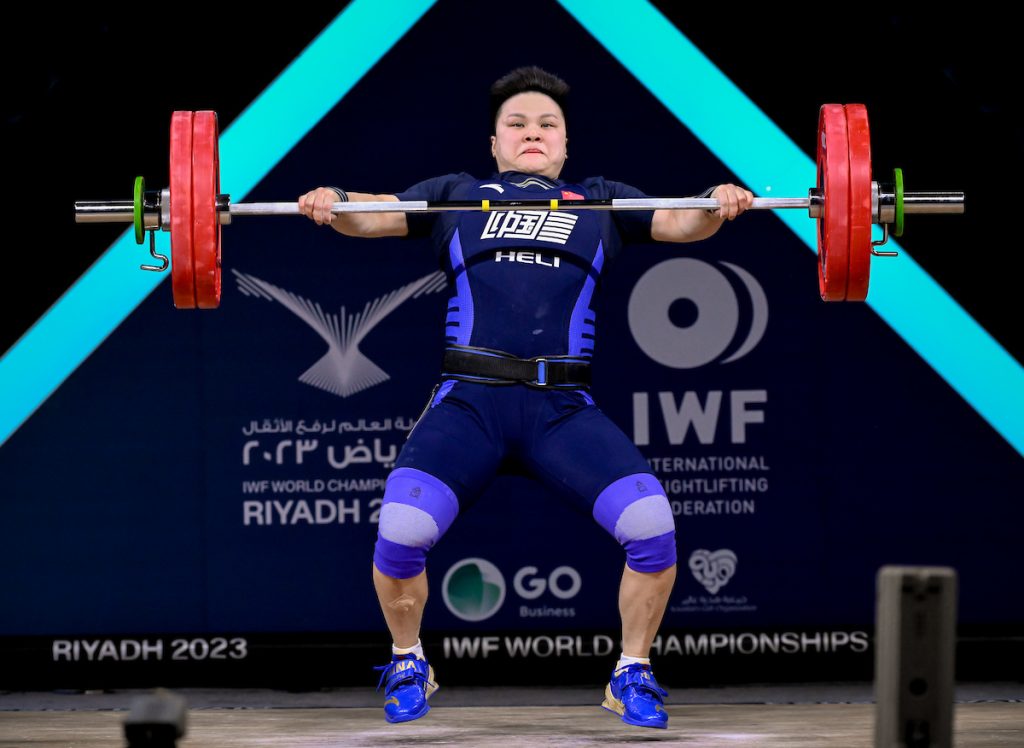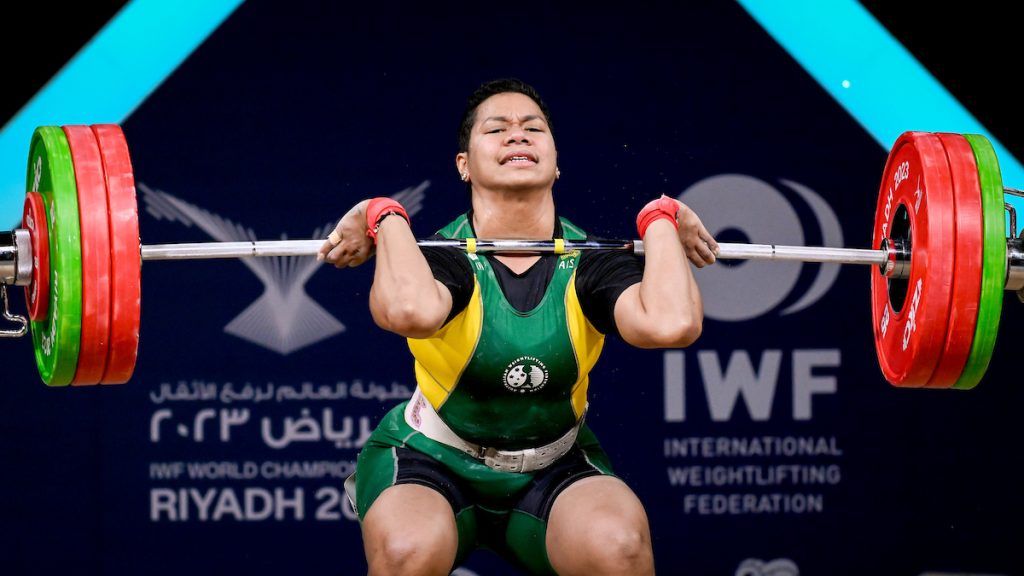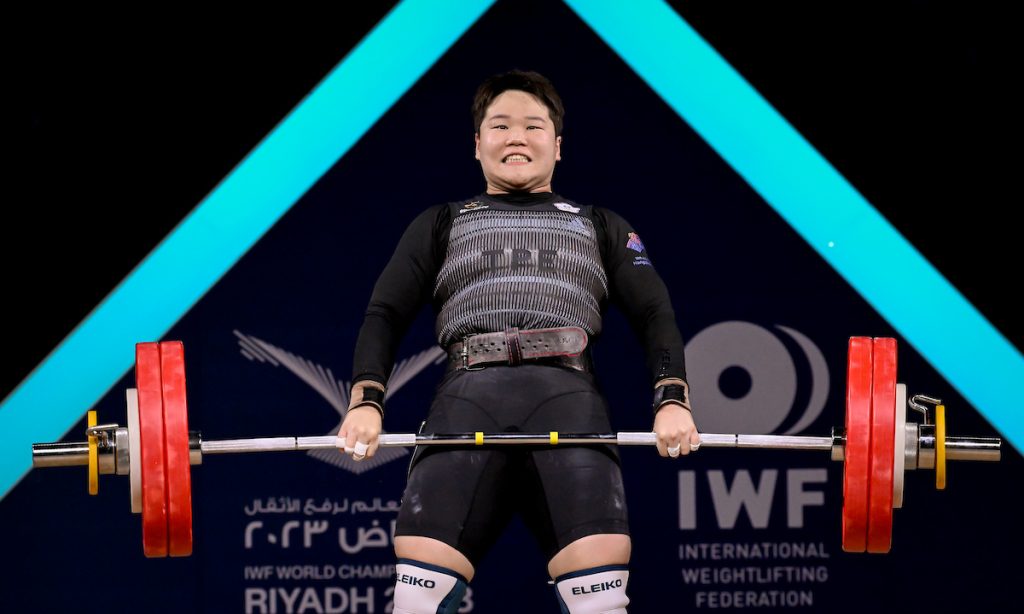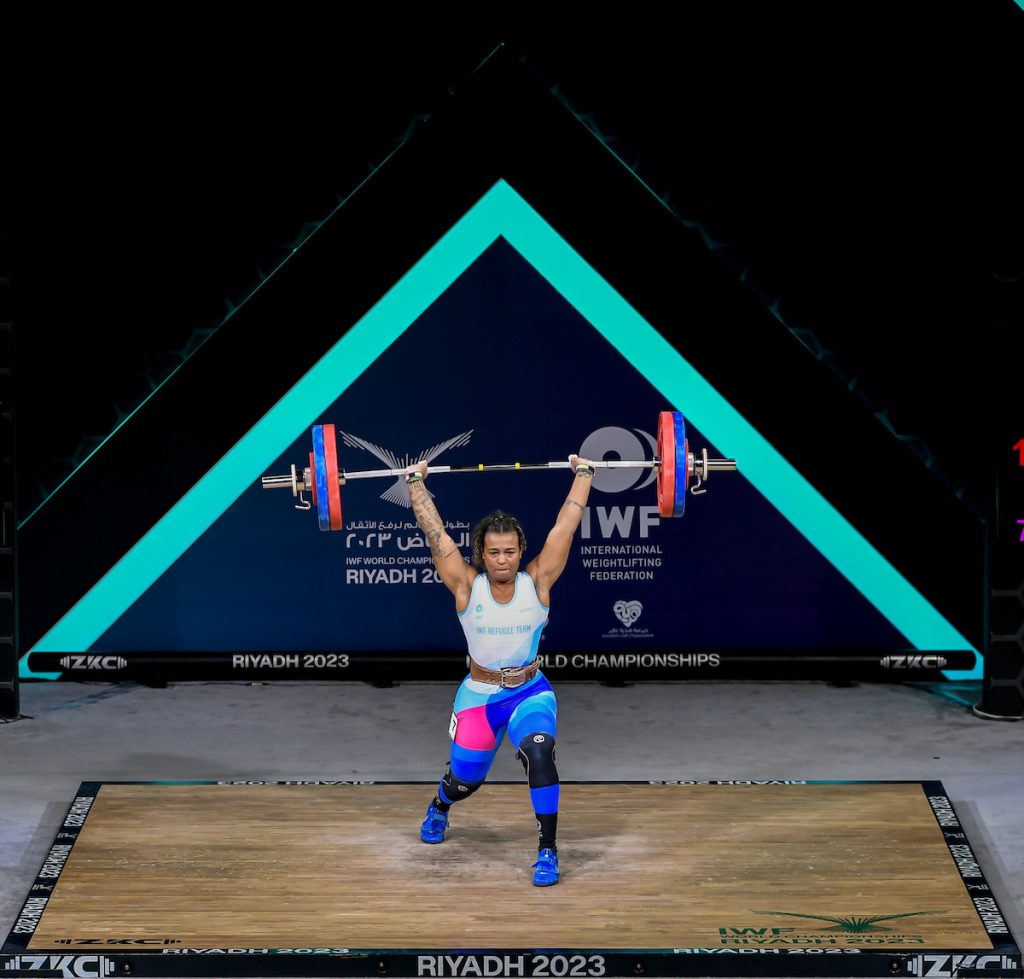Riyadh, Day 12: China’s Liang claims landmark weightlifting record – and Koanda suffers shock defeat
Liang Xiaomei did something that nobody had managed in five years when she extended her lead at the top of the Olympic rankings and claimed China’s seventh victory at the IWF World Championships here.
When new weight categories came into use in at the 2018 IWF World Championships, world standards were set for each of them.
Because those standards had never been surpassed in snatch, clean and jerk or total there were no world records in the women’s 81kg.
 Liang Xiaomei (CHN)
Liang Xiaomei (CHN)
When Liang, who will be 26 on Wednesday, made her final attempt at 159kg and became the first 81kg clean and jerk world record holder.
Her older Olympic champion team-mate Wang Zhouyu, who won in Tokyo at 87kg but has had to drop down since that weight was dropped for Paris, declined her final attempt after reaching 155kg, leaving Liang in the limelight.
Oceania had its first medallist of the Championships when Eileen Cikamatana finished third behind Liang and Wang.
The Chinese pair’s numbers are very similar and, said Liang, “that really helps us to improve, because we push each other in training”.

Wang Zhouyu (CHN)
The only Olympic category with three blanks for record holders now is the men’s 102kg, in which so many athletes have underperformed throughout qualifying.
Liang made all six lifts to win on 122-159-281, and is within range in snatch and total, where the world standards are 127kg and 283kg. Wang, 29, made 122-155-277, her best total by some distance at this weight.
Neisi Dajomes from Ecuador was third at halfway but retired, leaving Eileen Cikamatana and Mattie Rogers to make it a battle between Australia and the United States for third place.
Cikamatana, who has taken two years to fully recover from a bad injury sustained at the 2021 World Championships, claimed it on 110-146-256, her best total at this weight since January 2020.
“That was a surprise because I didn’t know what I was doing in terms of medals, I just knew I had to go out and make my lifts,” she said after finishing 4kg clear of Rogers, who improved her best qualifying total by 4kg. Her first qualifying total puts Cikamatana straight in at sixth place.

Eileen Chikamatana (AUS)
“I was like, ‘Oh, two bronze medals, that’s nice.’ Now I’ll try to do better in Qatar.”
That means two Olympic qualifiers in three weeks for Cikamatana, the Oceania Championships in Solomon Islands and that IWF Grand Prix II in Doha in November and December.
Solfrid Koanda, Norway’s strongest electrician, suffered a shock when she bombed out of the women’s 87kg.
She moved up from the Olympic 81kg category, in which she is third in the rankings, and was one of the strongest favourites in any weight category in Riyadh after four straight wins.
Koanda, who gave up her day job to become a full-time weightlifter last year, prepared well but failed three times to make a snatch of 115kg.
After the first bomb-out of her international career, Koanda came out to make a personal best in clean and jerk to win by a huge margin. She made all three lifts at 140kg, 150kg and 156kg.
“I have had the wind behind me for a year but this time no,” Koanda said. “These things can happen in sport, and better here than in Paris.
“I am still happy – I trained well, had a good preparation, and I will learn from this.”
The winner on total was Lo Ying-yuan from Chinese Taipei on 112-133-245, which was 15kg lower than Koanda’s winning total last year.

Lo Ying-yuan (TPE)
The Colombian Yeinny Geles was second on 106-138-244. There were cries of despair from third-placed Jung Aram from Korea, who failed with a final attempt that would have put her on top of podium. Jung made 107-134-241.
Anastasiia Manievska from Ukraine received her snatch bronze, earned with a lift of 106kg, with her left arm in a sling after suffering an injury.
Monique Araujo finished 14kg and seven places behind Lo but was every bit as happy as the champion and, along with her Swedish coach Patric Bettembourg, was in tears after making 105-126-231 in the B Group.
Araujo, one of the two Weightlifting Refugee Team members here, had not competed for more than six years. In her “new” career she posted a personal best total to give substance to her belief that, one day, she would return to the platform.
“I always felt in my heart that I would come back to weightlifting and the IWF helped me to do it. I owe them huge thanks,” she said after the tears had subsided.
Araujo was cleaning homes after moving to the United States to escape abuse and persecution in her native Brazil, and had to give up weightlifting to scrape a living.
“I had a lot of depression, a lot of bad things happened, I was working all day, eating badly … but I knew God would help me to return to this sport and it has happened.”

Monique Araujo (WRT)
Araujo watched a documentary about the International Olympic Committee’s (IOC) Refugee Team and when she asked about joining, she was redirected to the IWF board member Florian Sperl, who leads the refugee team project that was approved in March.
She joined the team along with partner and WRT team-mate Aline de Souza – they jointly formed their own cleaning company in the US – and finally was able to return to “this sport I love”.
Sperl was there to see it. “What a wonderful moment,” he said.
By Brian Oliver, Inside the Games
Photos by Giorgio Scala/Deepbluemedia










